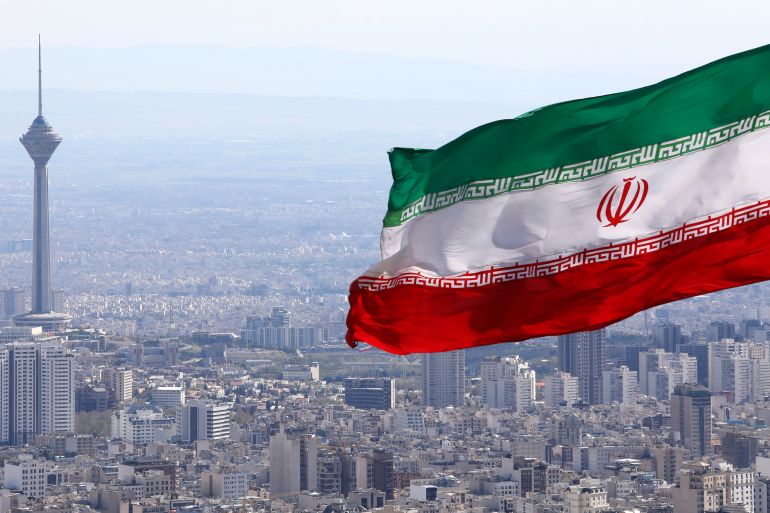Iran denies claims al-Qaeda member killed in Tehran
Tehran says Washington and Israel are trying to advance their ‘information war’ against Iran.

Tehran, Iran – Iran rejected claims that a top al-Qaeda figure was killed in Tehran in August by Israeli operatives, warning United States media of falling for “Hollywood-style scenario-making” by US and Israeli officials.
In a statement on Saturday, hours after a New York Times article said al-Qaeda’s second-highest leader was killed in Iran, foreign ministry spokesman Saeed Khatibzadeh said the “terrorist” group was formed as a result of failed American policies in the region.
Keep reading
list of 4 itemsSaudi king urges world to take ‘decisive stance’ against Iran
Iran’s Rouhani says Trump administration ‘abjectly struck down’
Iran’s low-enriched uranium stockpile 12 times beyond limit: IAEA
“In order to dodge responsibility for the criminal activities of this group and other terrorist groups in the region, Washington and Tel Aviv from time to time try to paint Iran as being tied to these groups through weaving lies and leaking fabricated information to the media,” he said.
The Times cited US intelligence officials as saying Muhammad al-Masri, accused of being one of the masterminds of two deadly 1998 attacks on American embassies in Africa, was gunned down by two assassins on motorcycles on August 7.
He was killed, the report said, along with his daughter, Miriam, the widow of Osama bin Laden’s son Hamza bin Laden.
After news of the shooting broke, news media in Iran identified the victims as Lebanese history professor Habib Daoud and his daughter Maryam. A Lebanese news channel and a number of unofficial social media accounts in Iran said Daoud was a member of Hezbollah, the Iran-backed political and armed group in Lebanon.
But the Times report said Daoud was an alias Iranian officials gave al-Masri and the history teaching job was a cover.
The report said Iran’s motive for keeping al-Qaeda seniors, bitter enemies of Tehran, might have been to provide insurance that the group would not conduct operations inside Iran or to run operations against the US.
‘Iranophobia’
In his Saturday statement, the Iranian foreign ministry spokesman said the United States has not shied away from spreading false claims against Iran in the past.
“But this approach has become a perennial trend under the current US administration, and the White House has tried to make strides in its Iranophobia scheme through repeating such allegations,” Khatibzadeh said.
He said there is no doubt that such accusations are levelled within the framework of “an all-out economic, information and psychological war against the Iranian people” and urged the media from enabling propagation of targeted lies.
Tensions between Tehran and Washington have been steadily increasing after US President Donald Trump in May 2018 unilaterally withdrew from Iran’s 2015 nuclear deal with world powers and imposed harsh sanctions.
Iran, which is also dealing with the deadliest COVID-19 pandemic of the Middle East, has called the stacking sanctions “economic and medial terrorism”.
In January, the US assassinated top Iranian general Qassem Soleimani in Iraq via a drone strike, which pushed tensions to a boiling point. Iran responded by firing missiles at two US bases in Iraq in an attack that bore no casualties.